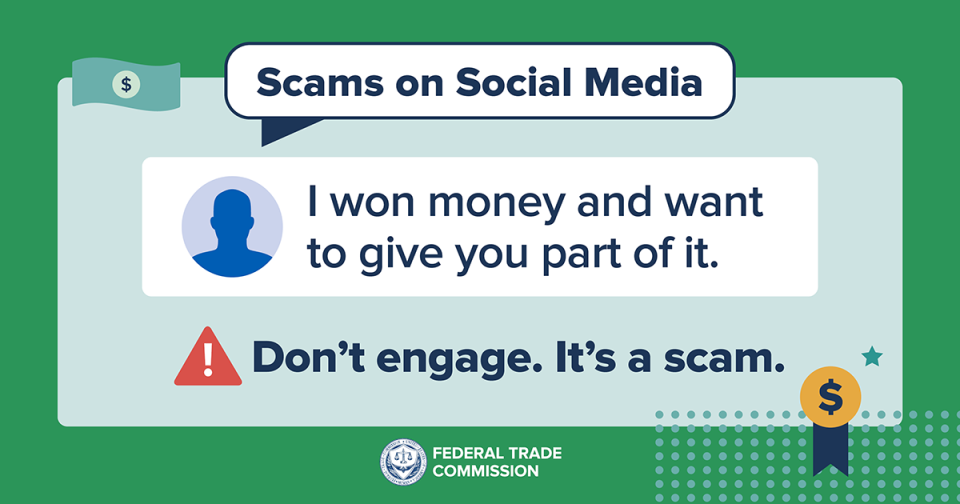Say you’re scrolling through your social media feed and you see a post saying, “I’m the winner of $600 million from the Powerball lottery. I’m giving away $50,000 to the first one thousand people to message me.” Would you answer? If you do, you could become the target of a scam.
Scammers are impersonating lottery winners on social media, often using the names of real winners to make their posts sound legit. If you reply to their posts, the fake lottery winner might ask for your phone number and send a text saying you won the money but need to act fast. That’s the first red flag. Why the time pressure?
Then they’ll tell you to put hundreds of dollars on gift cards, take pictures of the cards, and text the numbers from the back of the card to cover “processing and delivery fees.” That’s definitely a scam. Only scammers ask for gift cards as payment.
Just commenting on a post like this might seem fun and harmless. But it can lead you to engage with a scammer…and your feed will be bombarded with similar posts and even more scammers to deal with. Avoid them with these steps.
- Don’t pay to get a prize. Real prizes are free. Anyone who asks you to pay a fee for "taxes," "shipping and handling charges," or “processing fees” to get your prize is a scammer. Stop and walk away.
- Ignore “free money” posts. Anyone in your social media feed saying they have money to give you is a scammer.
- Never send money to someone you met online. Especially one who insists you only pay with gift cards, wire transfers, cryptocurrency, or payment apps like Apple Pay, CashApp, PayPal, or Zelle. That’s a sign of a scam.
People who know about scams are more likely to be able to spot them. So, please share what you know with your friends and family, and report scams at ReportFraud.ftc.gov.






Thanks!
Thanks!